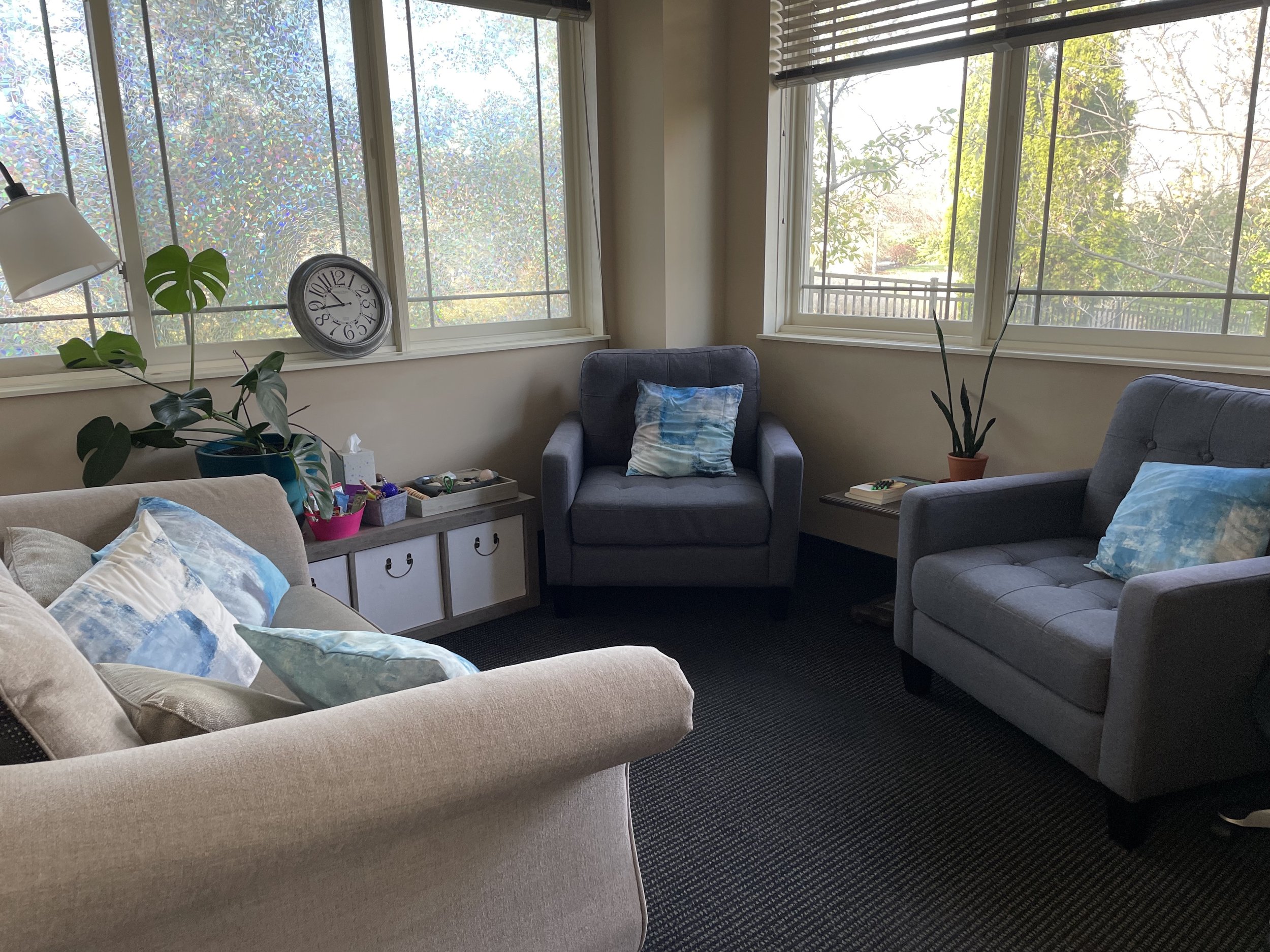7 Natural Ways to Get Rid of Nightmares
Do you have nightmares? Are they disruptive and keep you from getting a good night's sleep? If so, you're not alone. Nightmares can be very frightening and cause a lot of anxiety. Luckily, there are some natural ways to get rid of them for good! In this blog post, we will discuss five tips that should help you get rid of your nightmares and finally get a good night's sleep.
Nightmares Are Disruptive
It may sound obvious, but we have to start with just acknowledging how disruptive nightmares are. Especially when they keep going on and on, they can take up a lot of your time and energy. They can leave you exhausted and anxious throughout the day.
And Covid Didn't Help with Sleep
And, there's some research showing that nightmares may be happening more often since the start of the Covid19 pandemic started. This makes sense. Nightmares are a common response to extreme stress and our entire society has had the added stress of Covid19 at various points in the last few years.
Natural Ways to Reduce Nightmares
If you're like so many people I've worked with, you'd prefer to find a way to get rid of the nightmares and get better sleep without taking medication. Thankfully, there are some natural steps you can take to reduce your nightmares. Here are 7 tips that should help:
Start a Sleep Diary
Keeping track of when and how often your nightmares occur can give you insight into any patterns or triggers. It's a great place to start if you're having nightmares. Note each day the basics of your sleep such as what time you went to bed, how long it took to go to sleep when you started trying, how often you work up, how long you were awake and what time you work up.
Establish a Good, Relaxing Sleep Routine
Having a consistent routine that includes winding down activities such as reading or yoga and avoiding screens and caffeine before bedtime can help your body relax and get better quality sleep. You might try doing something rather "boring" such as unloading dishes, folding laundry, reading a biography, or putting together a puzzle. The point is to give your brain a chance to start relaxing.
Review Your Medication Side Effects
If you're taking any medications, it's important to review the side effects as some can contain nightmares or other sleep disturbances. If that's the case, consider talking to your doctor about changing your medication or dosage.
Practice Progressive Muscle Relaxation
Progressive muscle relaxation is a technique where you systematically tense and relax each muscle group in your body. This can help your body relax and reduce stress which can help reduce nightmares.
This is easily one of my favorite relaxation skills in general and something I often introduce during counseling sessions with clients. You can do it on you own (start by tensing for several seconds all muscles in your feet, then relax, then move systematically through each group of muscles in your body through your face & head) or listen to someone else guide you through it. If you want to do the latter, there are great apps and such out there. However, I often recommend clients just google "Progressive Muscle Relaxation" and choose one that's about the right length of time.
When you're trying to go to sleep, I recommend listening to a longer progressive muscle relaxation that will really take you step by step through the muscle groups. And if you fall asleep during it? That's perfectly fine-you're sufficiently relaxed and set up for a better night of sleep!
Avoid Turning to Alcohol, Cigarettes or Watching TV
Tempting as it may be, using alcohol, cigarettes or watching television before bedtime is not a good idea as all of these can actually interfere with your sleep. You're likely relying on these to help aid in relaxing you enough to get to sleep. But, in the long run, research is showing they are not helpful.
Now, I'm not saying you can never do these things. Full disclosure, I have a tendency to watch TV for a bit myself before falling asleep. I'm careful what I watch choosing something not funny and interesting but without a complicated story line that will keep me awake out of curiosity. In other words, usually a comedy show. So I'm not saying never do these things ever.
But consider giving them up right before bed while you're working on getting your nightmares under control.
Grounding When You Wake Up from a Nightmare
Ok, great. We've been talking about what to do if you want to decrease the nightmares. But part of the problem is the fear you face when you DO have a nightmare. And that fear continues the cycle. So, I want to make sure we're touching on what to do when nightmares do come up.
If you wake up in the night after a nightmare, practice grounding yourself in the current moment. By grounding, I'm referring oa ctivites that help you come back into the present moment and provide some form of distraction from the nightmare.
For example, practice 5-4-3-2-1. Or, keep a bottle of good smelling lotion or essential oil next to your bed you can reach over and smell to ground yourself in the here and now. Notice the difference in how the fabric of your pajamas and the fabric of your sheets feel. Open and close your hands or gently stretch noticing what the movement feels like. Even counting tiles on your ceiling may work.
Professional Counseling Using CBT for Nightmares in Missouri
Still struggling with nightmares? If the nightmares are disrupting your quality of life, reaching out to a professional may be a key to quickly resolving the issue. I recently attended a training for Cognitive Behavioral Therapy for Nightmares. It's an incredible protocol adapted by a group of clinicians and researchers who've been effectively treating insomnia for years and combines all of the best protocols and research people have developed to treat nightmares for years. I'm really excited about this protocol as I've had great success helping people quickly get rid of nightmares with a similar protocol in the past and this one has just a couple more elements I think will be even more helpful to my clients.
If you live in Missouri, I'd love either treat you myself for 3-6 sessions or set you up with one of the clinicians at Aspire Counseling that will be getting trained in this method in the next couple of months and I'll personally consult with and support.
If you don't live in Missouri, I still recommend you speak to a professional counselor, social worker or therapist directly about how they treat nightmares. Make it clear you want this to be a direct target for treatment. I do recommend looking for someone who has specific training in a protocol developed to target nightmares.
Summary: Natural Ways to Reduce Nightmares
Nightmares can be distressing and resulting in difficulty getting a good night sleep. There are ways you can reduce the frequency of nightmares, even if you want to avoid taking medication. Some of these include:
Keep a sleep diary and notice trends
Establish a consistent, relaxing sleep routine
Review medication side effects with your doctor or pharmacist
Practive Progressive Muscle Relaxation right before bed
Avoid using alcohol, cigarettes or TV to "help" fall asleep
Use Grounding when you wake up from a nightmare
Seek professional help from a therapist trained in a nightmare protocol
Nightmares as Part of the Bigger Picture
Now, I have to acknowledge here that nightmares often don't happen in a vacuum. Maybe, maybe nightmares are all you having going on. The good news is, the treatment can be very quick-often only a handful of sessions.
But please know that nightmares are often "co-occuring" with other things. A nightmare protocol can still help resolve your nightmares quickly. But, you may still be faced with underlying PTSD from something stressful if they're trauma nightmares. Or, underlying anxiety.
In those cases, seeking out trauma or anxiety treatment in addition to the nightmare protocol can help ensure greater long-term success.
Again, if you're in Missouri we have counselors equipped to help with a variety of mental health concerns and have particular expertise in anxiety treatment and PTSD/trauma therapy. So, please don't hesitate to reach out.
Check Out Our Video
About the Author
Jessica Tappana is a Licensed Clinical Social Worker in Missouri who works with teens and adults. Jessica specializes in helping clients heal from anxiety and trauma. She provides in person and virtual counseling sessions to those in Missouri. Additionally, she is the founder of Aspire Counseling and leads an incredible clinical team of therapists who rely on evidence based counseling interventions for a variety of mental health concerns.




